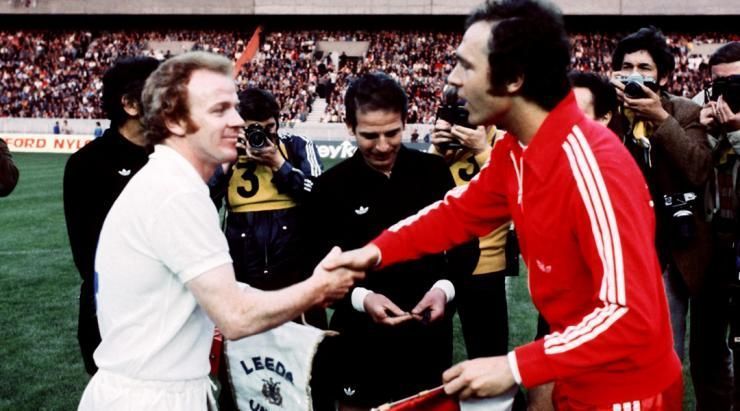
The untold story of Leeds United
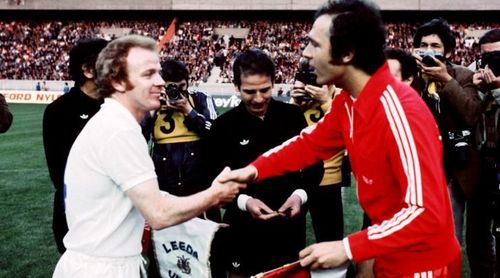
The Sabotage in Paris
They say that the outcomes of big matches are often "written in the stars". For the wills of the footballing gods do not always comply with the common logic.
The once impregnable Bayern Munich defence had failed to clear their lines following a dangerous free-kick floated in by the diminutive yet incredibly tough midfielder of his day - Johnny Giles.
As the ball bobbled around a crowded goal-mouth, if there was anyone you could bet your life on to produce a magic moment, it would have been the man dearly referred to as the "Lash" by the Leeds faithful.
The 29-year-old attacking midfielder from Scotland was widely known for his unique knack for powerful shooting, and after having tormented many a defence back in the domestic league, the man had built quite a reputation for himself.
And there he was; a trademark volley from Peter Lorimer found the net as the ball whistled past the hapless Bayern goalkeeper Sepp Maier.
“I have played in nine finals of one kind or another, and I’ve never been on the losing side. We will beat Leeds 2-0 or 2-1.” - The goalkeeper had claimed on the eve of the 1975 European Cup final in Paris – his confident smile celebrating a hint of arrogance.
Well, it was the men in white who were smiling now – as the Leeds stands erupted in joy, armed with colourful English flags.
“On the way to the final in ’75, Leeds beat the Swiss champions, the Hungarian champions, the Belgian champions and, in the semi-finals, the renowned Spanish champions Barcelona” - recalled Robert Endeacott as I spoke to him about that fateful night in Paris.
“We were Leeds United and scared of no one, we had shown that by beating Cruyff and Neeskens and co of Barcelona! There was a strong feeling that it was our destiny to win the European Cup.”
A lifelong Leeds fan, Robert is also the author of critically acclaimed books like “One Northern Soul”, “Dirty Leeds” and “After Extra Time (Dirty Leeds Uncut)”. For a man who has dedicated a large part of his life for the club, there’s still a child-like sense of passion in him - adrenaline rushing through his veins as he reflects on the times gone by.
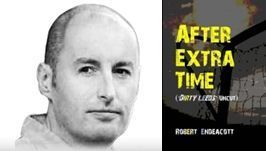
Leeds United was an ageing team back then, yet the spine of the side that had ushered the golden era of the club under the previous manager Don Revie was still intact. This was their chance for the final hurrah – an opportunity to reach the “Everest” as Geoffrey Green, football correspondent for The Times, had then remarked.
With the ball in the Bayern net and little more than 25 minutes to play, the dream appeared to be within a touching distance. The legendary team of Bayern Munich were overwhelming favourites going into the match, but perhaps it was indeed "written in the stars" for Leeds United.
Yet, the joy of scoring on that night in Paris was short lived. As Leeds players huddled near the penalty box – celebrating what they thought was a goal at the time – a certain Franz Beckenbauer, the Bayern captain, raised his arm in protest and rushed to the referee Michel Kitabdjian.
Not many knew what exactly transpired after that but in midst of the confusion, the referee decided to disallow the goal. Leeds captain Billy Bremner – who incidentally was not involved in the build-up - was ruled as being marginally offside.
This shattered their confidence - a sense of injustice permeated through the team. In fact, this was the third major decision that had gone against them in the match, after two seemingly blatant penalty appeals by Leeds had earlier been ignored by the referee.
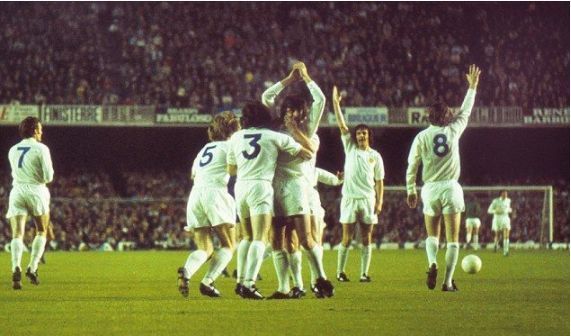
Worse was to follow, however. Two late goals by Franz Roth in the 71st minute and Gerd Müller in the 81st minute took the tie away from Leeds and with it, the dreams of thousands of Leeds supporters in the stadium.
A fan riot followed in the aftermath of the match, which resulted in a lost eye for a German TV operator, a broken arm for a photographer and destruction of nearly £50,000 worth of television camera. There are no reasons to condone such violence. However, if you put yourself in the shoes of those travelling fans that night – you would perhaps have empathised with them.
“Being only 10 years old at the time, I wasn’t allowed by my parents to go to the final, though I did attend the home leg of the semi-final in which Leeds beat Barcelona 2-1,” Robert continued – “My Dad went to the final - he worked for Leeds United for many years - and I remember him coming back very depressed and angry.”
“The Leeds supporters will never forget (or forgive) the defeat and the clear miscarriages of sporting justice. For me personally, the 1975 debacle was the worst football heartache I’d ever experienced and for the club it caused a major decline to set in, one that would take almost a generation to reverse.”
Robert isn’t far from the truth here. Indeed, such was the downfall in fortunes of the club that it took them another 25 years to sustain a similar run in the competition – a tournament which was now renamed and re-formatted as the UEFA Champions League.
Rebirth of the Spirit of '75 - The Quest For the "Holy Grail"
Times had changed. The European Cup was no longer a competition only for the champions but a selection of the top clubs from each country gained a ticket to contest the newly branded Champions League – a slight misnomer when you think of it.
The competition served as a massive revenue generating opportunity for the qualifying clubs with large chunks of money flowing in from television rights, sponsorships and matchday tickets.
Leeds United went into the competition with a young yet very talented side in the 2000-01 season. After getting past 1860 Munich in a nervy qualifying round encounter – Leeds defied all odds by scraping through from a group consisting of Barcelona, AC Milan and Besiktas.
The memorable win at Elland road against Milan was a sign of things to come, as a frontline consisting of Oliver Bierhoff and Andriy Shevchenko were unable to breach Nigel Martyn’s goal.
With a minute remaining in normal time, Lee Bowyer’s 35-yard long strike squeezed past the wet gloves of Dida, triggering massive celebrations in West Yorkshire. Leeds qualified for the second group stage, only to face Real Madrid, Lazio and Anderlecht.
The men in white once again stuck to their task, and managed to qualify for the quarter-finals, losing only twice to Real Madrid en route.
A clash against La Liga champions Deportivo La Coruna beckoned, and there were very few who gave Leeds a chance. At the turn of the new millennium, Deportivo were a team oozing with quality.
Under the management of Javier Irureta, they had comfortably beaten Barcelona to the pinnacle of Spanish football a year prior. Holland international Roy Makaay was instrumental to the cause and leading upto the match against Leeds, had termed them the “weakest link” in the competition.
Little did he anticipate the hostile and deafening Elland Road crowd that awaited his team. It proved to be a naive mistake as Leeds ran away with a 3-0 victory with goals from Ian Harte, Rio Ferdinand and Alan Smith.
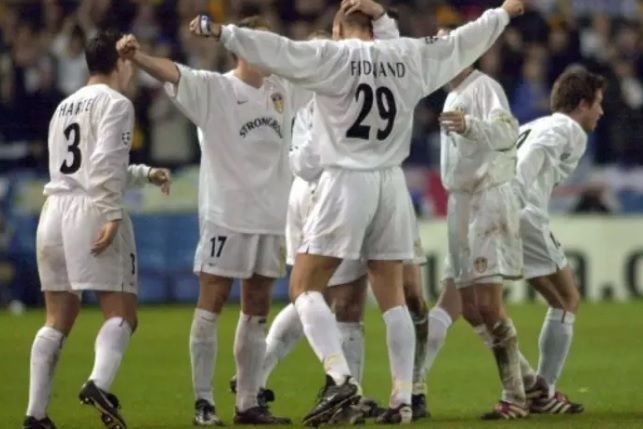
“The Deportivo game at Elland Road was a superb example of what our team could achieve,” recounts Robert. “Less-than-complimentary remarks about them from the Deportivo camp probably helped motivate the Leeds players. Do you know that old adage about not poking a tiger with a stick? That sums up this situation quite well as Leeds were 'tigerish' in their play and cut the visitors' defences to shreds! “
“ '3-0 to the weakest link' sounded loud and proud from the Leeds faithful, together with, to the tune of The Beatles' 'Yellow Submarine', 'We're all going on a European tour!' We all knew that the away leg would be very difficult but I remember most of us were confident we'd done enough at Elland Road to win the tie.”
Indeed, Robert and his fellow Leeds supporters had every reason to be confident- the young team under David O’Leary had left the fans reminiscing to the spirit of ’75.
The away leg resulted in a 2-0 loss but it was enough to clinch the tie.
It was a massive achievement for Leeds United and for many of their younger players, it was the stepping stone for future successes in their individual careers - as Ferdinand would himself admit in a 'letter to his younger self', for the Players' Tribune.
"It’s about truly becoming a professional. And at Leeds, mate, you will.
"You’ll always be a London boy, but Leeds is going to be a special place for you. It’s a one-club city. And that’s really going to mean something. It’s a unique responsibility and it’s the only time you’ll experience that. More important, you’ll get your discipline back. In two years time, you will’ve become captain and help take the side to the semi-finals of the Champions League."
"Playing for Leeds will be the best decision you’ll ever make.
"And you’ll finally get your spot on a World Cup squad. Something’s going to happen at the 2002 tournament, and honestly, it wouldn’t have happened without Leeds. You’re going to become a leader and you’re going to learn."
The semi-final against Valencia was too big a hurdle to cross, and Leeds’ spirited run was over. The fairy-tale had to end somewhere, but this had well and truly announced Leeds’ comeback to the grandest of stages!
Or had it?
Fall from Grace...
Well, the Champions League had become a financial lollypop for every participating club. Under the chairmanship of Peter Ridsdale, Leeds took massive loans in the hope of getting the share of the TV rights and sponsorship revenues from the Champions League qualification and subsequent progress in the competition.
However, they narrowly failed to qualify for the showpiece event in two successive seasons, and as a result, did not receive enough income to repay the loans. The financial implosion meant Leeds had to do with selling a chunk of their major players – including the much-publicised sale of Rio Ferdinand to Manchester United for approximately £30 million.
Incidentally, the fate of the English Premier League was taking a new turn at around the same time. Extensive marketing and worldwide broadcasting meant English football was no longer a local phenomenon.
The glitz and glamour of the league attracted significant attention from across the world, with a generation of football enthusiasts from major countries of Asia and Africa pledging their loyalties to many of the top Premier League clubs.
Financially, it had a massive impact, with clubs like Chelsea, Manchester United, Liverpool and Arsenal – teams which had traditionally shared rivalries with Leeds United - emerging out as global brands.
Unfortunately for Leeds, they had to exit the party well before it all began. Off-field developments meant that the performances on the pitch dwindled away as the men in white faced relegation in 2004 – putting them out of the elite league. Once again, with the “promised land” seemingly awaiting them, it again turned out to be a case of lost opportunity for Leeds United.
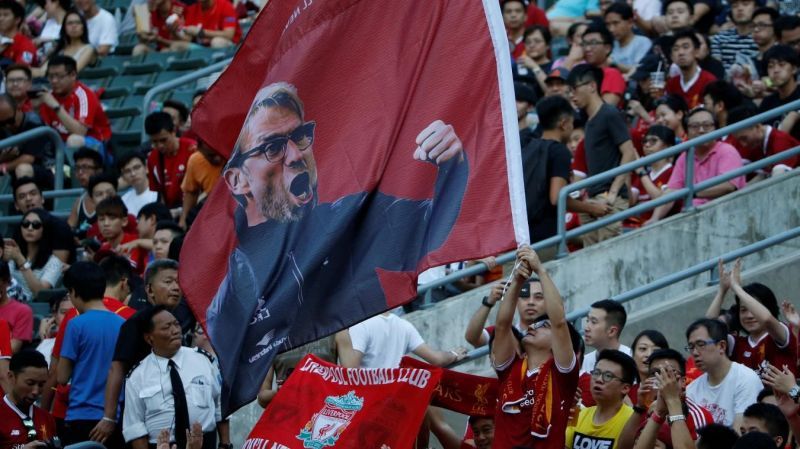
“Both Ridsdale and O’Leary have since blamed each other for the disastrous decisions but in truth they both are culpable,” opines Robert. “With external events and controversy inflicting even more damage, Leeds found themselves in financial meltdown with morale at the club plummeting.
Certain players who had helped make Leeds a force in the ascension again appeared much less inclined to fight against the grisly decline. With bad decisions and woeful mismanagement all around it was no surprise the team was eventually relegated and heading for ruin.”
As he recalls, what was a torrid time for the club, Robert is hopeful about his team making a recovery. Having had another drop to League One in the subsequent years, Leeds have since reclaimed their spot in the Championships and are currently ranked 5th with a shot at one of the play-off places well within their grasp.
“Finally, we are possibly seeing light and genuine hope on the horizon with the club now owned by Andrea Radrizzani, a reputable, successful and established sports businessman,” says Robert –“Thankfully with him at the helm, things have greatly improved and the club no longer appears to be dishonest or in 'shady hands'. The team isn't strong enough yet but I feel we are getting there at long last!”
Good times have been hard to come by for Leeds over recent years, but the 52-year-old author from Beeston, Leeds vividly remembers the rare moments of glory – for instance the league triumph in 1992 – their last top division league win.
"Fergie's Nemesis"
“Although the Leeds squad was relatively small and inexpensive compared to money-bags teams like Manchester United and Liverpool, there was a higher degree of quality throughout it and stronger ambition and determination,” reminisces Robert – “The English football season is a long, hard campaign and in those days it was even tougher than now, with more league games played, often on pitches which were in poor condition, muddy and even dangerous.”
“A beauty of that Leeds team was the combination of age & experience with youth & exuberance; hard running & never-say-die attitude with flair & finesse; direct and simple attacking moves with devastating & intricate marauding forward play. Leeds could attack the opposition from every angle, every player wanted to move the ball forward quickly and the players always ‘showed’ for each other so there was always a team-mate ready to link up with. “
“Gordon Strachan was the club captain that year. On and off the field of play he would lead with supreme professionalism, responsibility and intelligence, and of course fantastic skill. He was to Howard Wilkinson what Billy Bremner was to Don Revie in the 1960s and ‘70s - a superb captain and footballer who would give his all for the Leeds cause. There were good, honest players already at the club too and they would prove significant, plus the huge potential of ‘kids’ like David Batty and Gary Speed who would go on to great heights in the game.”
Alex Ferguson’s Manchester United had come second that year behind Leeds. Instead of graciously admitting defeat, however, Ferguson had claimed his side ‘lost’ the league rather than Leeds deservedly winning it.
Robert, nevertheless, was quick to shrug off those claims from the legendary Scotsman.
“He was, of course, talking nonsense, the title race is more a marathon than a sprint and whoever finishes first is the deserved, rightful victor. That season belonged to Leeds United!”
And it indeed belonged to them! While 'the peacocks’ from Yorkshire hope to replicate similar seasons in the future, even the staunchest supporters of the club know that there is still a lot of work to be done.
It remains to be seen what the future holds for the club but until then it remains a tale of “lost opportunities” and “near misses” for Leeds United. The Leeds fans have passionately stuck to their team in large numbers through thick and thin; through roads fraught with peril and uncertainty – singing their club anthem “Marching on Together” in their proud home at Elland Road.
Yet, while the stories of their historical rivals in English top division football often echoes around the pubs in Mumbai or in a Safari Lodge in Cape Town, the tales of Robert and his fellow fans still remains largely untold